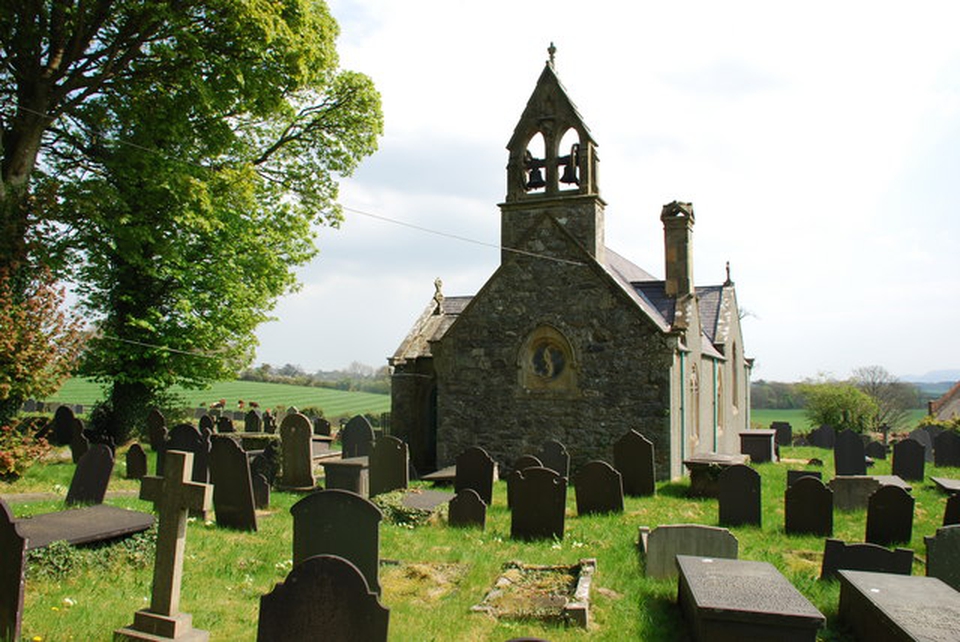
Hawlebion a Chaniatadau
Fel pob adeilad, mae pa waith y gellir ei wneud i eglwysi ac adeiladau eglwysig eraill yn gyfyngedig gan reoliadau cynllunio a chyfreithiau. O dan Ddeddf Cynllunio (Adeiladau Rhestredig ac Ardaloedd Cadwraeth) 1990, mae angen awdurdodi unrhyw waith, mewnol neu allanol, i adeilad rhestredig (sy'n cynnwys y fwyaf o'n heglwysi) a all 'effeithio ei gymeriad fel adeilad o ddiddordeb pensaernïol neu hanesyddol arbennig'. O dan Orchymyn Esemptiad Eglwysig (Adeiladau Rhestredig ac Ardaloedd Cadwraeth) (Cymru) 2018, gellir darparu'r awdurdodiad hwn gan yr Eglwys yn uniongyrchol trwy'r broses Hawleb heb angen i geisio Caniatâd Adeilad Rhestredig trwy'r broses cynllunio 'seciwlar'.
Caniateir Hawleb gan Ganghellor yr Esgobaeth, uwch Gyfreithiwr Eglwysig sy'n adolygu pob ceisiadau ac yn gwneud penderfyniad ar sail eu hanghenraid a'u haddasrwydd. Rhoddir cyngor i'r Canghellor gan gyrff amrywiol i gynorthwyo gyda'r broses hon:
- Pwyllgor Cynghorol yr Esgobaeth - cymysgedd o arbenigwyr a lleygwyr a enwebir gan Gynhadledd yr Esgobaeth.
- Cyrff Ymgynghorol gan gynnwys Cadw, yr Awdurdod Cynllunio perthnasol, a'r Cymdeithasau Amwynder Cenedlaethol.
- Corff Cynrychiolwyr yr Eglwys yng Nghymru, yn aml trwy'r Comisiwn ar gyfer Gadeirlannau ac Eglwysi.
- Cofrestrydd yr Esgobaeth - y prif gyfreithiwr sy'n cynghori'r Esgobaeth ar faterion cyfreithiol.
Unwaith y bydd y Canghellor yn hapus mae ganddynt yr holl wybodaeth berthnasol, bydd yn penderfynu caniatáu Hawleb neu wrthod y cais. Mae'n bosibl i apelio'r penderfyniad hwn, ond unwaith yr apêl wedi'i chlywed, mae'r penderfyniad yn derfynol.
Ar gyfer gwaith y byddai ei angen Caniatâd Cynllunio y tu hwnt i Ganiatâd Adeilad Rhestredig fel arfer, rhaid ei geisio trwy'r broses seciwlar ar y cyd â'r cais Hawleb.
Faculties & Permissions
Like all buildings, what work can be carried out to churches and other church buildings is restricted by planning regulations and laws. Under the Planning (Listed Buildings and Conservation Areas) Act 1990 any works, internal or external, to a listed building (which includes the majority of our churches) that may 'affect its character as a building of special architectural or historic interest' must be authorised. Under the Ecclesiastical Exemption (Listed Buildings and Conservation Areas) (Wales) Order 2018, this authorisation can be provided directly by the Church in Wales through the Faculty process without the need to apply for Listed Building Consent through the 'secular' planning process.
A Faculty is granted by the Chancellor of the Diocese, a senior Ecclesiastical Lawyer who reviews all proposals and makes determination based on both their necessity and appropriateness. In order to assist him or her in this, advice is provided by various bodies:
- The Diocesan Advisory Committee - a mixture of experts and laypeople nominated by the Diocesan Conference.
- Consultative Bodies including Cadw, the relevant Planning Authority, and the National Amenity Societies.
- The Representative Body of the Church in Wales, often through the Cathedrals' and Churches' Commission.
- The Diocesan Registrar - the main solicitor advising the Diocese on legal matters.
Once the Chancellor is satisfied that he or she has all the relevant information, he or she will decide to either grant a Faculty or reject the application. It is possible to appeal this decision, but once the appeal is heard, the decision is final.
For works that would normally require Planning Permission over and above Listed Building Consent, this must be sought through the secular process in conjunction with the Faculty application.
